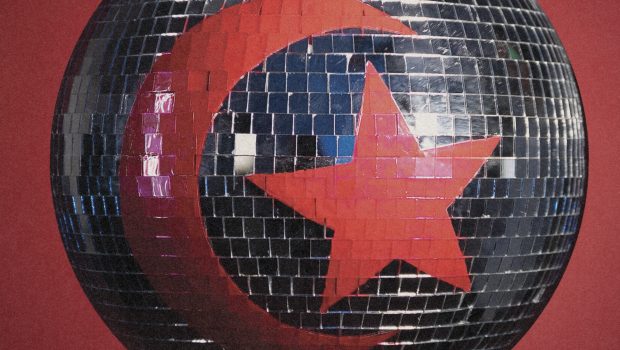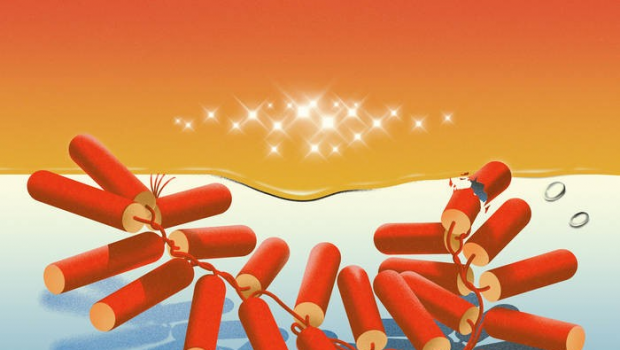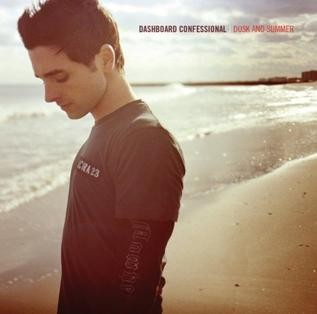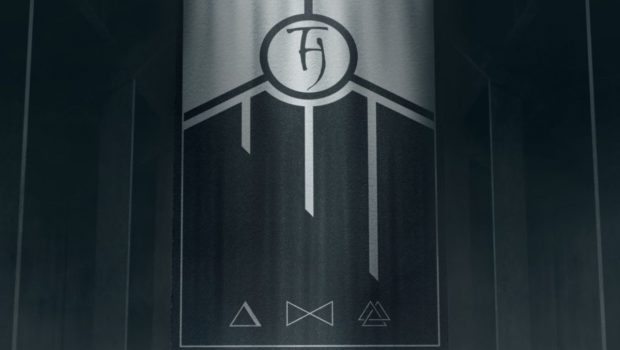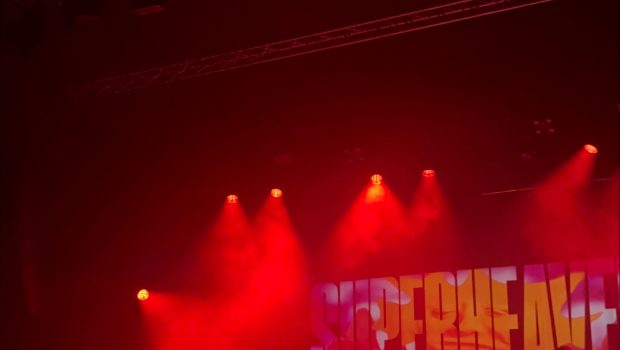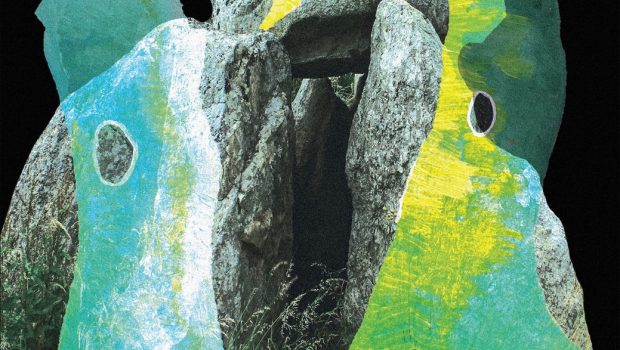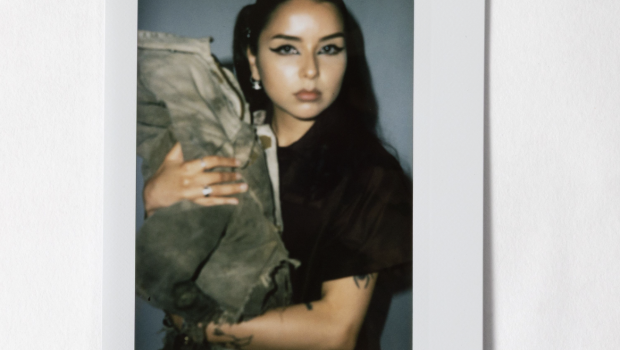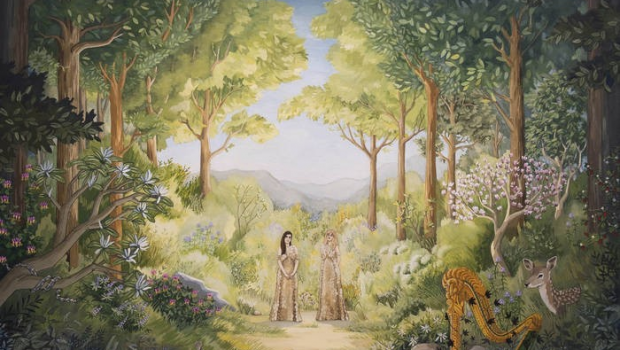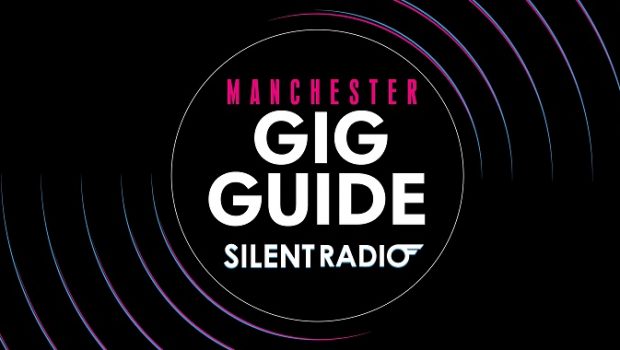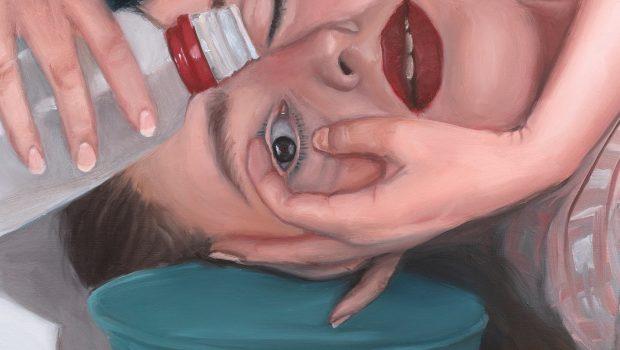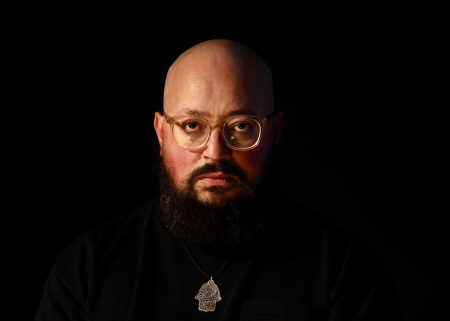
AMMAR 808 photo by Sia Rosenberg
The latest album from Sufyann Ben Youssef under the moniker AMMAR 808, ‘Club Tounsi’, is a fearless display of heavy electronic rhythms combined with traditional Tunisian sounds. Ben Youssef’s back catalogue illustrates his alchemist’s skill in fusing disparate elements. His 2018 debut, ‘Maghreb United’, combined deep electronic elements with traditional North African instrumentalists, vocalists from Algeria, Tunisia and Morocco, alongside his science fiction fascination. The follow-up, 2020’s ‘Global Control / Invisible Invasion’, saw him shift continents, collaborating with musicians and vocalists from the Carnatic and other south Indian traditions to investigate the tales of the Mahabharata. A fascinating artist who makes joyous music, he graciously answered my emailed questions.
What are your first memories of hearing music?
I remember learning to use the K7 machine and being stuck in listening in loops to a few tapes: Om Kalthoum: some albums by the rock band Queen; and an album by Ella Fitzgerald and Louis Armstrong.
Was there a particular moment where you first thought, “I want to make music”?
Yes, it was when I fiddled around with the first keyboard synth ever to enter my parents’ house. After a few days I was able to play all the melodies that I could remember. As a kid I could do this all day long. At that moment I asked my parents to enrol me for piano classes.
What attracted you to using the TR-808 to make music? Had you tried other technologies or instruments before?
The first time I used an 808 was in a studio in Brussels. The interaction sparked a whole discussion with the studio owner about Analog vs. Digital machines. From that point on I tested many different drum machines and analogue synths, but once I started touring, I was faced by the limitation of such gear in terms of compatibility with the rest of my setup. I finally set on using the Elektron analogue rhythm as it was fully analogue but with digital control. It was quite versatile as a drum machine and sounded massive and mix ready compared to an old 808.
I have read that you studied at the Institute of Music in Tunis. How did that help you to develop your music?
Studying musicology in Tunis gave me the opportunity to sculpt my ears and music perception with the micro-tonal and micro-timing aspect of music. We used to dive into Tunisian and Middle Eastern maqams as well as classical music and harmony. My passage there gave me a very solid base for understanding music from other cultures than mine. It was hardcore at times; we had these transcription sessions where the teacher plays some tape only once and we had to figure out how to write the music in real time. You never knew what to expect, sometimes it’s Japanese shamisen, or flamenco. It was a wild course and a good exercise.
How did you come to be releasing music through Glitterbeat? (I should add that they are one of my favourite labels having brought such a wide range of music to my attention.)
I used to have a band called Bargou 08, our manager of the time managed to get us signed with Glitterbeat. Since then and five albums later the label feels like family. This label was crucial in my development as an artist.
Could you tell me about the process of choosing the songs that appear on ‘Club Tounsi.’ A lot of the songs seem to be celebrating love and beauty – was this a theme you wanted to develop – and what other ideas did you want to put across?
In Club Tounsi, I chose the songs while diving into my childhood memories. These are songs that somehow had a resonance to them in my mind and memory but also after living abroad for over 20 years, there is a reflection on identity and what makes me Tunisian. I found out that these childhood memories helped focus the sound of the album and sooth the identity question. I think that when you travel the world you realise that your roots are not something you should take for granted, in my opinion it helps understand Tunisia better, as the distance gives clarity. Identity is something flexible, dynamic and in continuous metamorphosis. This album ended up being my take on Tunisian club music, not from Berlin or London, but from Tunisia and made in Tunisia and for the world to hear.
There are a lot of collaborations on your records. How do you go about choosing who to work with and has it been easy to arrange?
If this album process teaches me something, it’s that I should plan less. I was performing a show in Tunis and planned to stay a week after to see some friends and family. I met some of my musician friends and shared with them my wish to record this repertoire maybe on my next trip to Tunis. They said, “why wait, we can arrange a recording for tomorrow.” The same day, I met the singers and the musicians the morning of the recordings. Three days later the album was recorded…it was extremely efficient.
How does the process of collaboration work? Do you give instructions or let the artists find their own way? Do you work together “live” or record them first and add your own contributions afterwards?
I usually share with the interpreter what I want to do. I always have a plan B in case things don’t sound as good in recording as in my imagination but as a rule of thumb I always record more than I need, because later in production I can select the best tracks to put together.
Do you have a dream list of people you would like to work with in future?
I have been blessed with working with amazing singers and musicians, I don’t have anyone in mind as for me the most exciting part of this process is when I am in discovery mode, when things are unexpected, to be honest I don’t always know where things will go in production, so my senses in these recording sessions are completely overdosed with adrenaline, trying to be in the moment but also out of time, sensing and projecting into the future, trying to see it as it already happened.
Each of your albums has had a distinct focus on music from different countries or regions (India for ‘Global Control’, Tunisia for ‘Club Tounsi’.) Do you have any plans at this stage for future releases to include music from other areas?
India and it’s a long love story, I usually don’t make plans when it comes to albums, it’s a matter of sensing the way, for me it feels like walking in the dark, till I start to see something manifesting itself, like a spark of beauty, a groove, a person, a colour… it can be anything, but I usually like to look into things like myths, traditions, materials that are still relevant today although its old.
You put out a live album, ‘Live at Another Sky’ earlier this year. Can you tell us about your live performances.
I started performing Ammar 808 in 2017. The live show changed so much since then, gear wise but also in form. For me it’s very important to change the set on a regular basis, otherwise I start to get bored, it’s like I need not to be in total control, taking risks on stage, the uncertainty can create magical moments of very high energy.
What are your future plans?
Besides the tour in Europe, I’m working towards a tour of the Arab world as, since the launch of Club Tounsi singles, my audience over there grew considerably. I’m also a full-time producer and mixer for other artists.
What is the best place for keeping up to date with your activities?
That would be instagram or facebook.
Instagram: @ammar_8_0_8
Facebook: @ammar808
